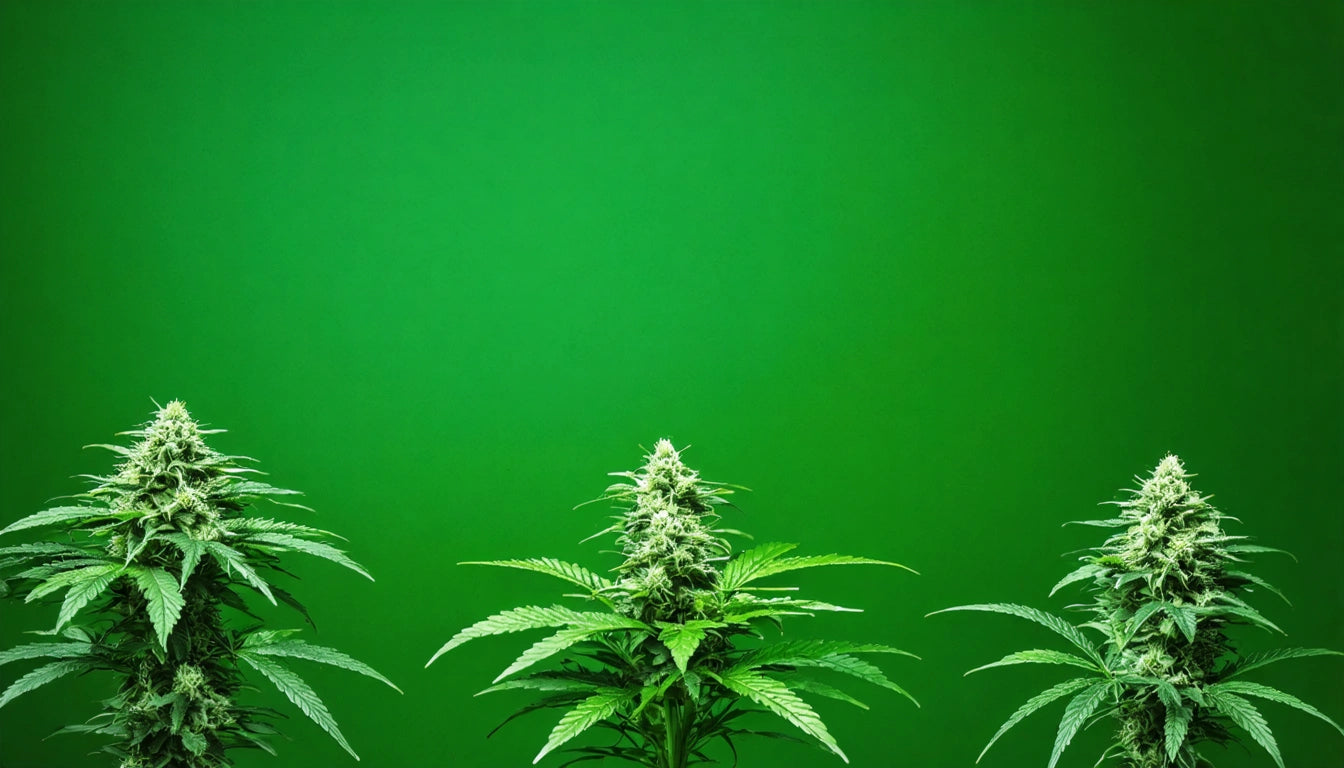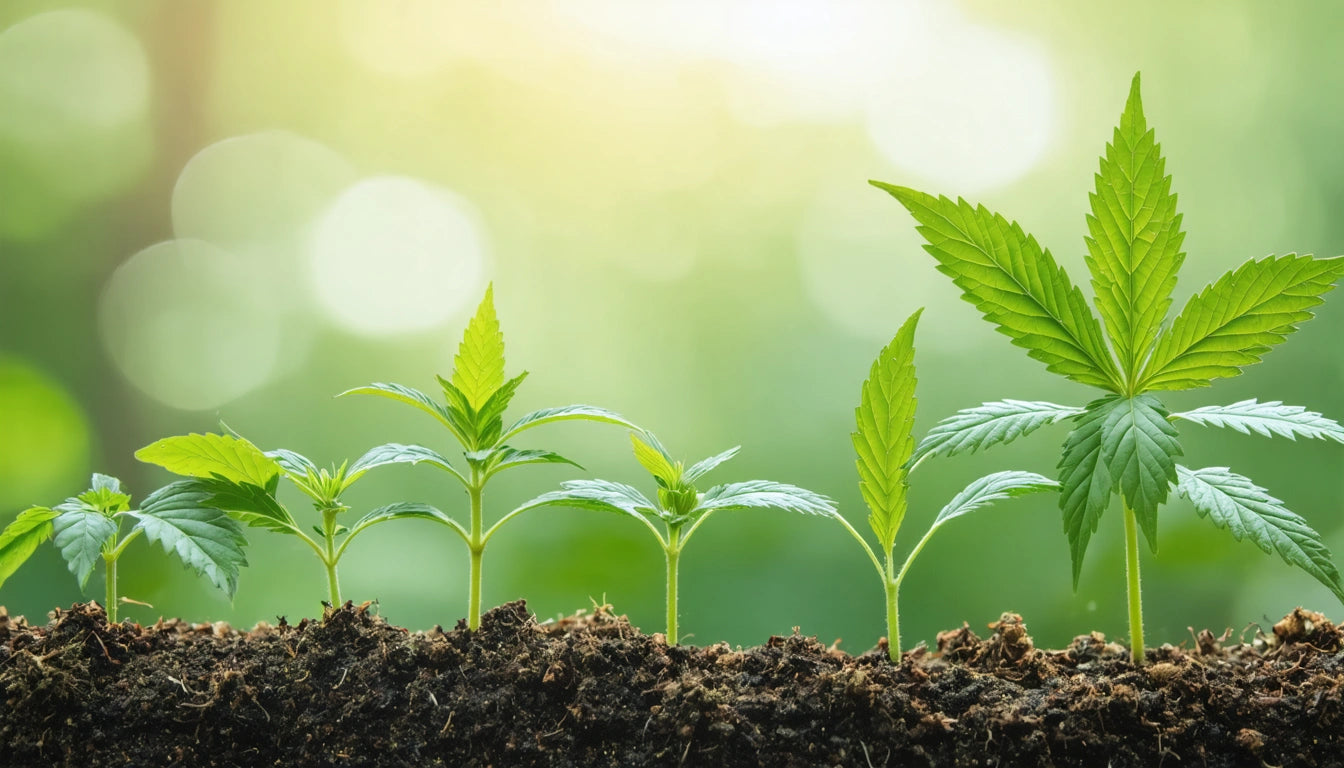How to Properly Water Cannabis Plants: A Comprehensive Guide
Proper watering is fundamental to cannabis cultivation success. Understanding how much water cannabis plants need and when to provide it can make the difference between thriving plants with abundant yields and struggling plants with diminished potency. This guide covers essential aspects of cannabis irrigation to help growers optimize their watering routines.
Understanding Cannabis Water Needs
Cannabis plants require balanced moisture levels to develop strong root systems and healthy foliage. The question of how much water does a cannabis plant need varies based on several factors including plant size, growing medium, and environmental conditions.
Average Water Requirements
A mature cannabis plant in the flowering stage typically consumes 1-1.5 gallons of water every 1-3 days. Smaller plants in the vegetative stage may require only 0.5-1 gallon during the same period. According to our comprehensive watering guide, the goal is to maintain consistent soil moisture without creating waterlogged conditions.
The Importance of Proper Drainage
Regardless of how much water weed plants receive, proper drainage is essential. Cannabis roots require oxygen, and standing water can lead to root rot and other moisture-related problems. Always ensure your growing containers have adequate drainage holes and consider adding perlite or vermiculite to heavy soils to improve aeration.
Signs of Improper Watering
Learning to recognize signs of improper watering helps growers adjust their practices before serious damage occurs.
Underwatering Symptoms
- Drooping or wilting leaves that feel papery and thin
- Slow growth and development
- Dry, brittle lower leaves
- Soil pulling away from the sides of the container
Overwatering Symptoms
- Drooping leaves that feel firm and swollen
- Yellowing leaves, particularly lower foliage
- Slowed growth despite adequate nutrients
- Algae or fungus growth on soil surface
Watering Techniques for Different Growth Stages
Cannabis water requirements change throughout the plant's life cycle, requiring growers to adapt their approach accordingly.
Seedling Stage
Seedlings have minimal water needs. The soil should remain lightly moist but never saturated. A spray bottle can provide gentle hydration without disturbing delicate roots. Typically, seedlings need water every 2-3 days, using only enough to moisten the top inch of soil.
Vegetative Stage
As plants develop a stronger root system, they can handle more water and less frequent watering. During this stage, the question of how much water does one cannabis plant need becomes more relevant. Medium-sized plants may require 0.5-1 gallon every 2-3 days. Water thoroughly until you see runoff from the drainage holes, then wait until the top 1-2 inches of soil feel dry before watering again.
Flowering Stage
Flowering plants have the highest water demand. Research on watering frequency shows that mature flowering plants may need 1-3 gallons every 1-3 days, depending on plant size and environmental conditions. Maintaining proper moisture during this critical phase supports bud development and resin production.
Water Quality and pH Considerations
The best water for weed plants isn't just about quantity but also quality. Water quality significantly impacts nutrient availability and overall plant health.
Water Sources
Common water sources include tap water, filtered water, reverse osmosis water, and rainwater. Each has advantages and potential drawbacks:
- Tap water: Convenient but may contain chlorine and other chemicals
- Filtered water: Removes some contaminants while retaining beneficial minerals
- Reverse osmosis water: Ultra-pure but requires mineral supplementation
- Rainwater: Natural and free, but may contain environmental pollutants
pH Balancing
Cannabis thrives when water pH falls between 6.0-6.5 for soil and 5.5-6.0 for hydroponic systems. Improper pH can lock out nutrients even when they're present in adequate amounts. Inexpensive pH meters or test strips can help monitor and adjust water pH before application.
Environmental Factors Affecting Water Requirements
Understanding how much water pot plants need requires consideration of environmental variables that influence transpiration and evaporation rates.
Temperature and Humidity
Higher temperatures and lower humidity levels increase water consumption. Plants in hot, dry environments may need up to twice the water as those in cooler, more humid conditions. Using humidity control products can help maintain optimal moisture levels in the growing environment, reducing plant stress and water consumption.
Airflow and Light Intensity
Strong airflow and intense lighting accelerate water usage. Plants under powerful grow lights or in windy conditions transpire more rapidly, increasing their water requirements. Balancing light intensity with proper watering schedules helps optimize growth without stressing plants.
Advanced Watering Strategies for Optimal Yields
Experienced growers can implement specialized watering techniques to enhance plant performance and maximize yields.
Watering Cycles and Training
Some growers use strategic dry periods to stress plants slightly, which can stimulate root growth and potentially increase resin production. This technique requires careful monitoring to prevent harmful drought stress. Understanding how watering affects yield helps growers make informed decisions about irrigation strategies.
Automation and Monitoring
Automated watering systems with moisture sensors can provide precise irrigation based on actual soil conditions rather than fixed schedules. These systems help maintain optimal moisture levels consistently, especially for larger grows where manual watering becomes time-consuming.
Mastering cannabis watering techniques requires attention to detail and adaptability. By understanding your plants' specific needs and environmental conditions, you can develop an effective watering strategy that promotes healthy growth and maximizes yield potential. Remember that each growing situation is unique, and the best approach comes from combining knowledge with careful observation of your plants' responses.











Leave a comment
All comments are moderated before being published.
This site is protected by hCaptcha and the hCaptcha Privacy Policy and Terms of Service apply.